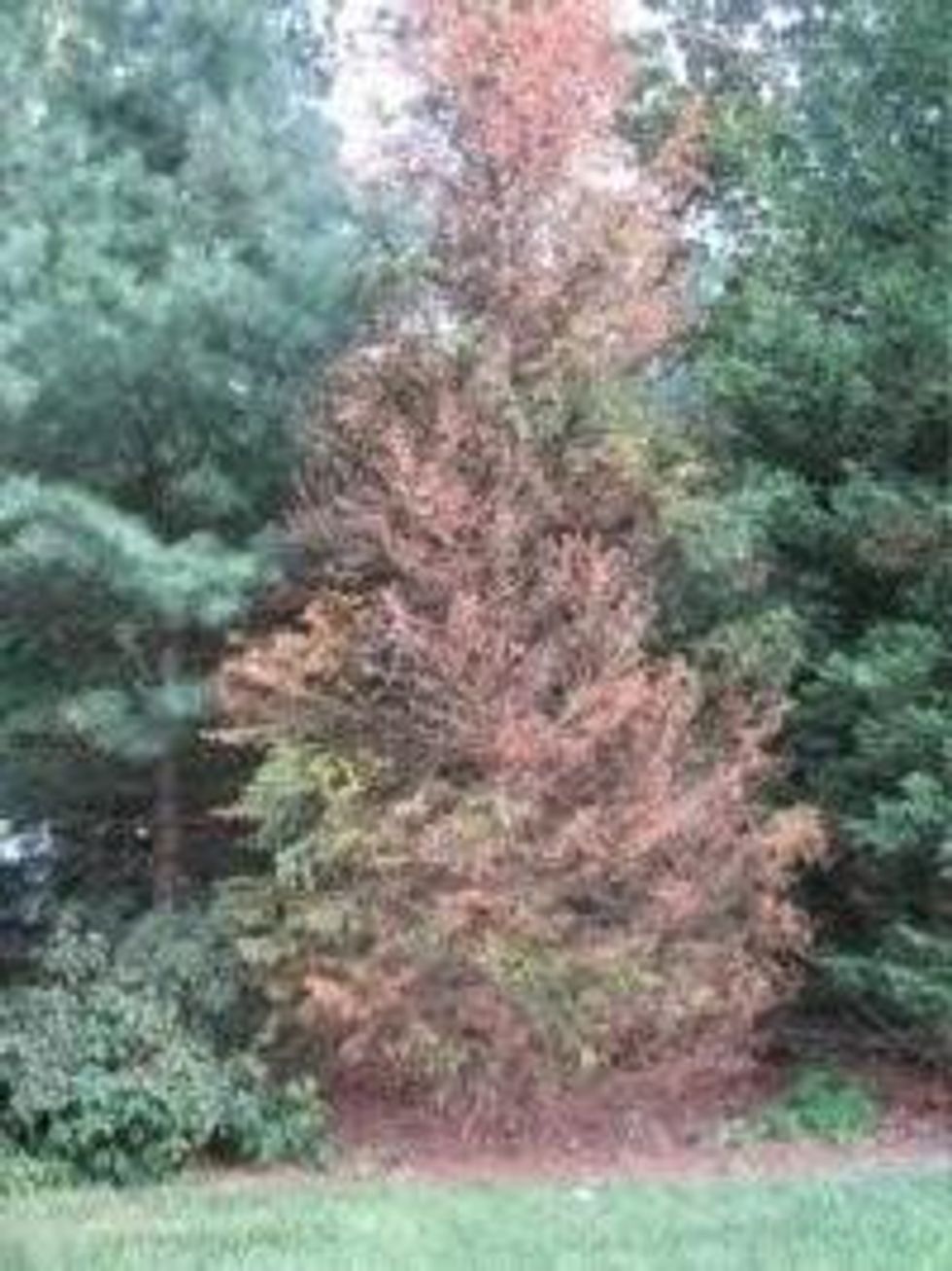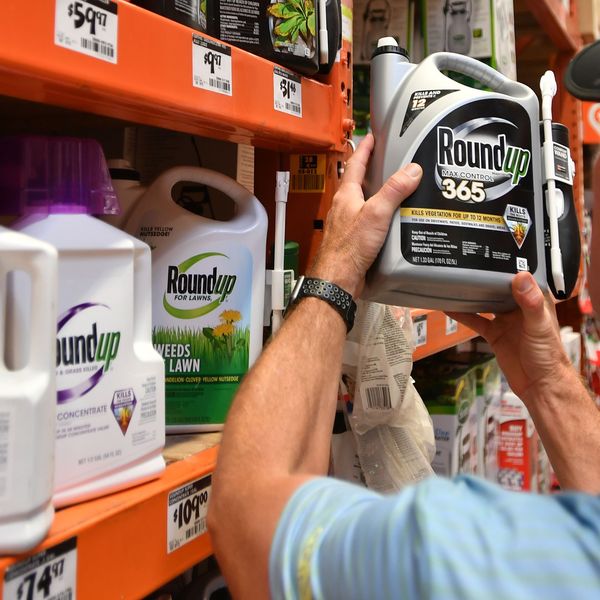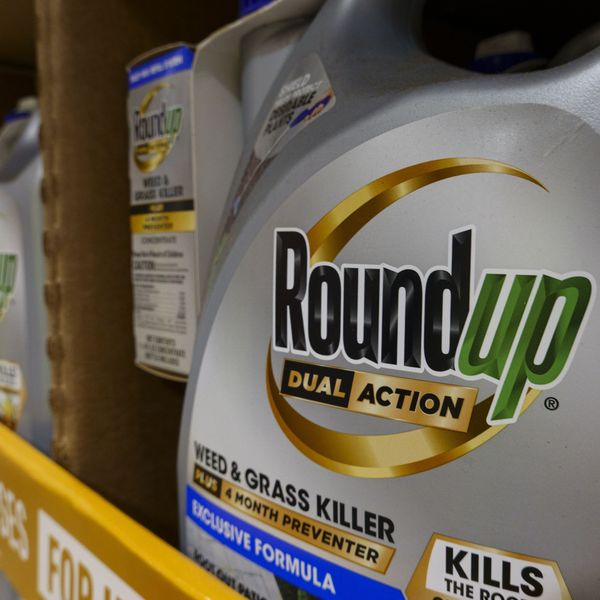DuPont's Herbicide Goes Rogue
The company's landscaping weed-killer turned out to be a tree-killer.
In the corporate world's tortured language, workers are no longer fired. They just experience an "employment adjustment." But the most twisted euphemism I've heard in a long time comes from DuPont: "We are investigating the reports of these unfavorable tree symptoms," the pesticide maker recently stated.
How unfavorable? Finito, flat-lined, the tree is dead. Not just one tree, but hundreds of thousands all across the country are suffering the final "symptom."

The culprit turns out to be Imprelis, a DuPont weed-killer widely applied to lawns, golf courses, and -- ironically -- cemeteries.
Rather than just poisoning dandelions and other weeds, the herbicide also seems to be causing spruces, pines, willows, poplars, and other unintended victims to croak.
"It's been devastating," says a Michigan landscaper who applied Imprelis to about a thousand properties this spring and has already had more than a third of them suffer outbreaks of tree deaths. "It looks like someone took a flamethrower to them," he says.
At first, DuPont tried to dodge responsibility, claiming that landscape workers might be applying the herbicide improperly. The corporation even urged customers to be patient and leave the tree corpses on their lawns to see if they'd come back to life in a few years.
However, faith-based landscaping was a hard sell. Disgruntled homeowners began filing lawsuits. Then DuPont had its own "aha!" moment when trees on the grounds of the DuPont Country Club also developed the "unfavorable symptoms" of Imprelis poisoning.
So, with DuPont's cooperation, the EPA has finally banned sales of the tree-killing herbicide. But because of inadequate testing and a rush to profit, the poison will remain in the soil -- and our water-- for many moons. Trees will continue to die. Will we never learn?
An Urgent Message From Our Co-Founder
Dear Common Dreams reader, The U.S. is on a fast track to authoritarianism like nothing I've ever seen. Meanwhile, corporate news outlets are utterly capitulating to Trump, twisting their coverage to avoid drawing his ire while lining up to stuff cash in his pockets. That's why I believe that Common Dreams is doing the best and most consequential reporting that we've ever done. Our small but mighty team is a progressive reporting powerhouse, covering the news every day that the corporate media never will. Our mission has always been simple: To inform. To inspire. And to ignite change for the common good. Now here's the key piece that I want all our readers to understand: None of this would be possible without your financial support. That's not just some fundraising cliche. It's the absolute and literal truth. We don't accept corporate advertising and never will. We don't have a paywall because we don't think people should be blocked from critical news based on their ability to pay. Everything we do is funded by the donations of readers like you. Will you donate now to help power the nonprofit, independent reporting of Common Dreams? Thank you for being a vital member of our community. Together, we can keep independent journalism alive when it’s needed most. - Craig Brown, Co-founder |
In the corporate world's tortured language, workers are no longer fired. They just experience an "employment adjustment." But the most twisted euphemism I've heard in a long time comes from DuPont: "We are investigating the reports of these unfavorable tree symptoms," the pesticide maker recently stated.
How unfavorable? Finito, flat-lined, the tree is dead. Not just one tree, but hundreds of thousands all across the country are suffering the final "symptom."

The culprit turns out to be Imprelis, a DuPont weed-killer widely applied to lawns, golf courses, and -- ironically -- cemeteries.
Rather than just poisoning dandelions and other weeds, the herbicide also seems to be causing spruces, pines, willows, poplars, and other unintended victims to croak.
"It's been devastating," says a Michigan landscaper who applied Imprelis to about a thousand properties this spring and has already had more than a third of them suffer outbreaks of tree deaths. "It looks like someone took a flamethrower to them," he says.
At first, DuPont tried to dodge responsibility, claiming that landscape workers might be applying the herbicide improperly. The corporation even urged customers to be patient and leave the tree corpses on their lawns to see if they'd come back to life in a few years.
However, faith-based landscaping was a hard sell. Disgruntled homeowners began filing lawsuits. Then DuPont had its own "aha!" moment when trees on the grounds of the DuPont Country Club also developed the "unfavorable symptoms" of Imprelis poisoning.
So, with DuPont's cooperation, the EPA has finally banned sales of the tree-killing herbicide. But because of inadequate testing and a rush to profit, the poison will remain in the soil -- and our water-- for many moons. Trees will continue to die. Will we never learn?
In the corporate world's tortured language, workers are no longer fired. They just experience an "employment adjustment." But the most twisted euphemism I've heard in a long time comes from DuPont: "We are investigating the reports of these unfavorable tree symptoms," the pesticide maker recently stated.
How unfavorable? Finito, flat-lined, the tree is dead. Not just one tree, but hundreds of thousands all across the country are suffering the final "symptom."

The culprit turns out to be Imprelis, a DuPont weed-killer widely applied to lawns, golf courses, and -- ironically -- cemeteries.
Rather than just poisoning dandelions and other weeds, the herbicide also seems to be causing spruces, pines, willows, poplars, and other unintended victims to croak.
"It's been devastating," says a Michigan landscaper who applied Imprelis to about a thousand properties this spring and has already had more than a third of them suffer outbreaks of tree deaths. "It looks like someone took a flamethrower to them," he says.
At first, DuPont tried to dodge responsibility, claiming that landscape workers might be applying the herbicide improperly. The corporation even urged customers to be patient and leave the tree corpses on their lawns to see if they'd come back to life in a few years.
However, faith-based landscaping was a hard sell. Disgruntled homeowners began filing lawsuits. Then DuPont had its own "aha!" moment when trees on the grounds of the DuPont Country Club also developed the "unfavorable symptoms" of Imprelis poisoning.
So, with DuPont's cooperation, the EPA has finally banned sales of the tree-killing herbicide. But because of inadequate testing and a rush to profit, the poison will remain in the soil -- and our water-- for many moons. Trees will continue to die. Will we never learn?

